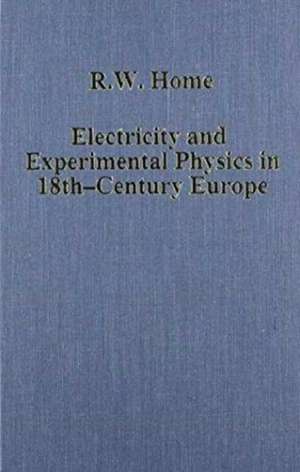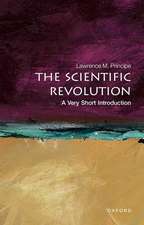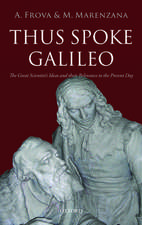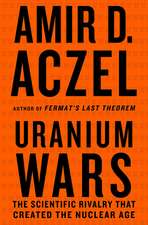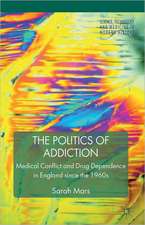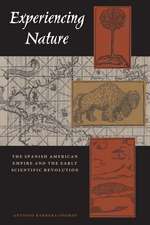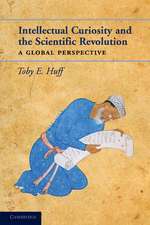Electricity and Experimental Physics in Eighteenth-Century Europe: Variorum Collected Studies
Autor R. W. Homeen Limba Engleză Hardback – 30 apr 1992
Din seria Variorum Collected Studies
-
 Preț: 311.18 lei
Preț: 311.18 lei -
 Preț: 310.55 lei
Preț: 310.55 lei -
 Preț: 299.55 lei
Preț: 299.55 lei - 9%
 Preț: 1041.23 lei
Preț: 1041.23 lei -
 Preț: 386.77 lei
Preț: 386.77 lei -
 Preț: 351.48 lei
Preț: 351.48 lei -
 Preț: 313.38 lei
Preț: 313.38 lei -
 Preț: 386.77 lei
Preț: 386.77 lei -
 Preț: 310.22 lei
Preț: 310.22 lei -
 Preț: 258.66 lei
Preț: 258.66 lei -
 Preț: 343.33 lei
Preț: 343.33 lei - 9%
 Preț: 938.44 lei
Preț: 938.44 lei -
 Preț: 311.41 lei
Preț: 311.41 lei - 9%
 Preț: 938.85 lei
Preț: 938.85 lei -
 Preț: 312.75 lei
Preț: 312.75 lei - 9%
 Preț: 936.60 lei
Preț: 936.60 lei -
 Preț: 341.55 lei
Preț: 341.55 lei -
 Preț: 320.00 lei
Preț: 320.00 lei - 34%
 Preț: 764.20 lei
Preț: 764.20 lei - 22%
 Preț: 312.43 lei
Preț: 312.43 lei - 34%
 Preț: 739.65 lei
Preț: 739.65 lei - 34%
 Preț: 764.20 lei
Preț: 764.20 lei - 34%
 Preț: 680.73 lei
Preț: 680.73 lei - 26%
 Preț: 247.40 lei
Preț: 247.40 lei - 34%
 Preț: 485.78 lei
Preț: 485.78 lei - 34%
 Preț: 764.20 lei
Preț: 764.20 lei - 34%
 Preț: 769.51 lei
Preț: 769.51 lei - 34%
 Preț: 764.20 lei
Preț: 764.20 lei - 34%
 Preț: 826.68 lei
Preț: 826.68 lei - 25%
 Preț: 222.32 lei
Preț: 222.32 lei - 25%
 Preț: 225.54 lei
Preț: 225.54 lei - 34%
 Preț: 767.07 lei
Preț: 767.07 lei - 34%
 Preț: 764.20 lei
Preț: 764.20 lei - 34%
 Preț: 736.38 lei
Preț: 736.38 lei - 34%
 Preț: 738.42 lei
Preț: 738.42 lei - 25%
 Preț: 226.52 lei
Preț: 226.52 lei - 33%
 Preț: 491.66 lei
Preț: 491.66 lei - 34%
 Preț: 485.78 lei
Preț: 485.78 lei - 34%
 Preț: 485.78 lei
Preț: 485.78 lei - 34%
 Preț: 764.20 lei
Preț: 764.20 lei - 34%
 Preț: 736.38 lei
Preț: 736.38 lei - 31%
 Preț: 473.94 lei
Preț: 473.94 lei - 18%
 Preț: 807.71 lei
Preț: 807.71 lei - 34%
 Preț: 764.20 lei
Preț: 764.20 lei - 34%
 Preț: 764.20 lei
Preț: 764.20 lei - 34%
 Preț: 764.20 lei
Preț: 764.20 lei - 51%
 Preț: 485.78 lei
Preț: 485.78 lei - 34%
 Preț: 485.78 lei
Preț: 485.78 lei - 34%
 Preț: 769.10 lei
Preț: 769.10 lei - 34%
 Preț: 766.65 lei
Preț: 766.65 lei
Preț: 741.72 lei
Preț vechi: 1115.32 lei
-33% Nou
Puncte Express: 1113
Preț estimativ în valută:
141.94€ • 147.35$ • 118.36£
141.94€ • 147.35$ • 118.36£
Carte tipărită la comandă
Livrare economică 22 martie-05 aprilie
Preluare comenzi: 021 569.72.76
Specificații
ISBN-13: 9780860783183
ISBN-10: 0860783189
Pagini: 320
Dimensiuni: 150 x 224 mm
Greutate: 0.75 kg
Ediția:1
Editura: Taylor & Francis
Colecția Routledge
Seria Variorum Collected Studies
Locul publicării:Oxford, United Kingdom
ISBN-10: 0860783189
Pagini: 320
Dimensiuni: 150 x 224 mm
Greutate: 0.75 kg
Ediția:1
Editura: Taylor & Francis
Colecția Routledge
Seria Variorum Collected Studies
Locul publicării:Oxford, United Kingdom
Public țintă
Academic and PostgraduateCuprins
Contents: Preface; Newton on electricity and the aether; Force, electricity and the powers of living matter in Newton’s mature philosophy of nature; Francis Hauksbee’s theory of electricity; ’Newtonianism’ and the theory of the magnet; Out of the Newtonian straitjacket: alternative approaches to 18th-century physical science; Leonhard Euler’s anti-Newtonian theory of light; The notion of experimental physics in early 18th-century France; Nollet and Boerhaave: a note on 18th-century ideas about electricity and fire; Franklin’s electrical atmospheres; Some manuscripts on electrical and other subjects attributed to Thomas Bayes, F.R.S.; Electricity and the nervous fluid; Electricity in France in the post-Franklin era; On two supposed works by Leonhard Euler on electricity; Aepinus, the tourmaline crystal, and the theory of electricity and magnetism; Science as a career in 18th-century Russia: the case of F.U.T. Aepinus; Aepinus and the British electricians: the dissemination of a scientific theory; Scientific links between Great Britain and Russia in the second half of the 18th-century; Physical principles and the possibility of a mathematical science of electricity and magnetism; Poisson’s memoirs on electricity: academic politics and a new style in physics; Index.
Descriere
At the beginning of the 18th century there was no science of physics as we recognise it today; by the early years of the nineteenth century, there was. The articles in this volume are concerned with the process by which this came about. They focus, in particular, on the rise of experimental physics and the interactions between experiment, theory and mathematics in the study of electricity and, to a lesser extent, magnetism and physical optics during this period. Along the way, they provide a significant reassessment of Isaac Newton’s influence on the science of his successors. A further recurring theme is the process by which ideas were disseminated within the expanding scientific community of the day, and the manner of their reception, often in a form somewhat different from that envisaged by their first inventors, as Professor Home argues took place in the case of Franklin. The social and intellectual context of the ’scientist’, indeed, is the specific subject of several essays, dealing not only with England and France, but also offering new insights into the position of science in 18th-century Russia.
